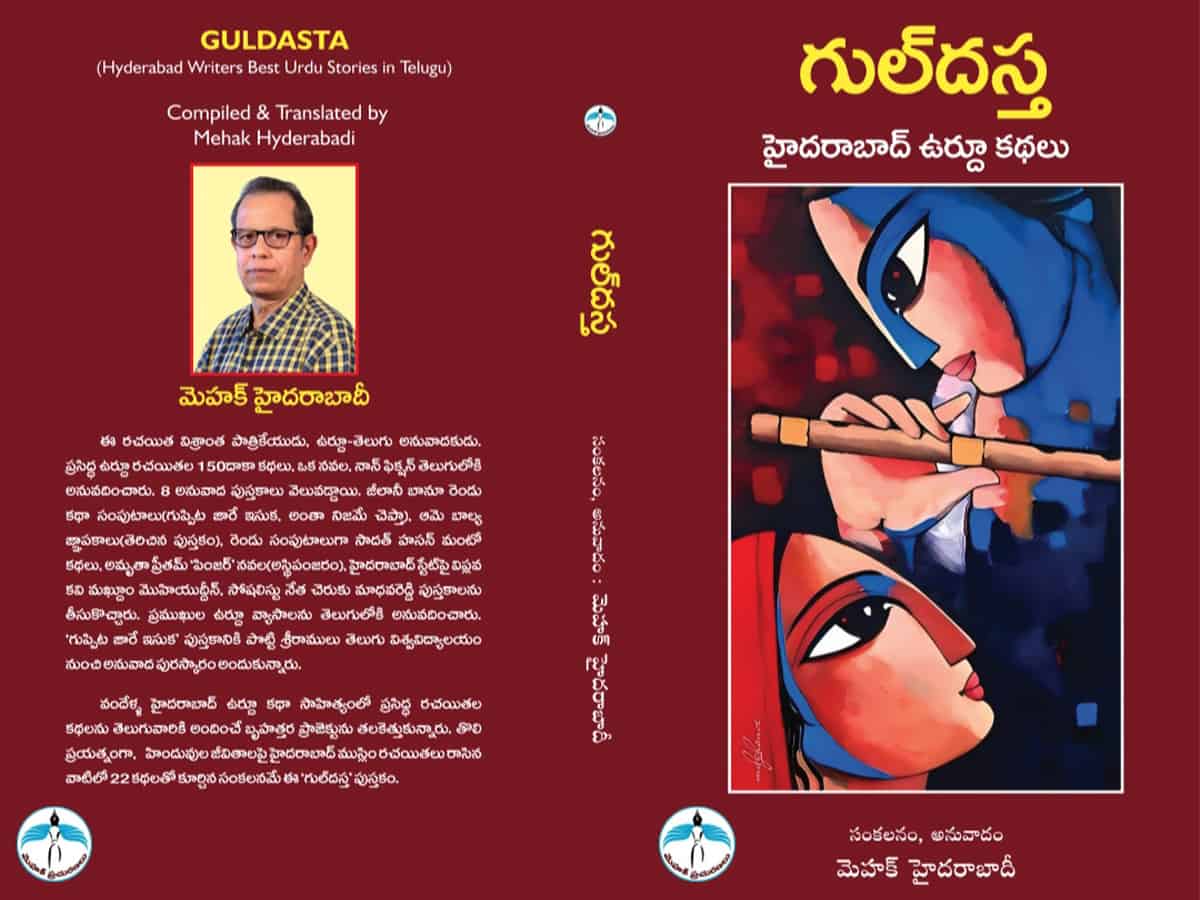
Hyderabad: A glance at the book shows that it is no ordinary compilation of stories. It is a vibrant tapestry woven with threads of cultural understanding. The endeavor emerges not merely as a literary pursuit but as a bridge to connect hearts across religious lines.
As the pages unfold, Guldasta becomes a portal into the intricate tapestry of Hindu life as depicted by Muslim Urdu writers. The stories resonate with the pulse of diverse customs and traditions, transcending the boundaries of religious affiliations. Padullaparthy Venkata Suryanarayana Murthy, who writes under the pen name Mehak Hyderabadi, delicately extracts the essence of these Urdu tales and transplants it into the rich soil of Telugu literature.
The narrative weaves through the trials and tribulations of Hindu society, painting a nuanced portrait that goes beyond stereotypes. Through the lens of these Urdu tales, readers are invited to witness the kaleidoscope of human experiences that bind us together, irrespective of faith.
Murthy’s motivation extends beyond literary exploration; it’s a conscious effort to dispel misgivings and foster mutual understanding. In a world where discord often overshadows harmony, his new book, Guldasta (Bouquet) emerges as a testament to the power of literature in building bridges. The journalist-turned-author has embarked on a journey to dismantle preconceived notions and build a shared narrative.
His proficiency in Urdu allows Murthy to transcend the limitations of literal translation, capturing the soul of the stories and presenting them in the melodic cadence of Telugu. The translated narratives, far from being mere replicas, pulsate with the vitality of the original Urdu tales. The transfer of cultural nuances and emotions remains intact, ensuring that readers traverse the landscapes of these stories with genuine engagement.
Social cohesion in India faces challenges marked by a vertical split along religious lines, particularly between Hindus and Muslims. Language barriers further compound matters. “I want to remove this distrust and dispel preconceived notions through my writings to the extent possible,” says Murthy.
Guldasta becomes a metaphorical offering, a bouquet of stories carefully plucked from the garden of Urdu literature, presented to Telugu readers as a gesture of shared humanity.
A Telugu journalist, Murthy worked for several vernacular newspapers before his retirement. As an empanelled writer with the Sahitya Academy, he plans to translate more books from Urdu to Telugu. But why Urdu? “I love the sweetness of the language”, he says.
Guldasta, his tenth book, is a part of the ambitious project to bring out the best of Hyderabad Urdu short stories in the Telugu language spanning a century – from 1925 to 2025. An arduous task, it took more than three years for Murthy to write the present book after poring over 500 short stories published in 85 years. The book contains 22 stories of 20 well-known Urdu writers, including 8 prominent women writers. Most of them were either associated with the Anjuman Taraqqi Pasand Musannafin or were influenced by its ideology.
The Urdu writers whose stories find mention in Guldasta are: Qamar Jamali, Mahmood Hamid, Najma Nikhat, Ibrahim Shafiq, Jeelani Bano, Awaz Sayeed, Atiq Shah, Baig Ehsas, Farida Zain, Yaseen Ahmad, Kishwar Sultana, Ali Baqar, Sayyada Tayyaba Khusro, Dr. Mohammad Muzaffaruddin Farooqui, Sabir Kosgvi, Kadir Zaman, Bano Tahira Sayeed, Iqbal Mateen, Rasheed Quraishi, and Fatima Taj.
What are these stories about? They delve into societal issues, addressing untouchability, discrimination, gender disparities, and the struggles of women amidst male chauvinism. These stories also shed light on Hindu traditions, cultural nuances, and deep-rooted customs – offering a poignant exploration of beliefs. Through diverse narratives, these tales navigate the intricate fabric of society, unraveling the complexities of both its injustices and traditions. Some of the stories also revisit mythological narratives.
Currently, he is working on two collections of stories written by renowned Marathi Dalit writer and social reformer, Annabhau Sathe, from Hindi. He is also working on the Urdu translation projects of Baig Ehsas’s anthology ‘Dakhma’ and Husain-ul-Haque’s novel Amawas Mein Khwaab assigned by Central Sahitya Academy.
In a society where divisive narratives often dominate headlines, Murthy’s Guldasta stands as a beacon of harmony and understanding. Through his tenacious efforts, he transforms literature into a catalyst for unity, proving that the pen, when wielded with purpose, can be a powerful instrument of change.
